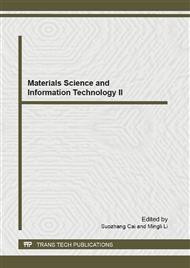p.1214
p.1219
p.1225
p.1230
p.1235
p.1239
p.1243
p.1248
p.1253
Multiprocessor Scheduling Problem Based on Ant Colony Optimization Algorithm
Abstract:
Multiprocessor Scheduling is a problem of discrete optimization. The strong optimization capacity of Ant Colony Algorithm (ACA) on solving the discrete optimization suggests the feasibility to solve the multiprocessor scheduling problem using the ACA algorithm. Contrary to the shortcomings of traditional ant colony algorithm, this is easy to fall into the local convergence, In order to improve the calculation accuracy. combined of multiprocessor scheduling problem, propose a more efficient ant colony optimization algorithm and present a new state transition rule, at the same time use dynamically update the strategy of ant pheromones and the optimal parameter selection. it can find a better scheduling strategy in a short time, and it has excellent global optimization properties, The simulation results show that the credibility and the validity of the improved ant colony optimization algorithm for multiprocessor scheduling problem.
Info:
Periodical:
Pages:
1235-1238
Citation:
Online since:
June 2012
Authors:
Price:
Сopyright:
© 2012 Trans Tech Publications Ltd. All Rights Reserved
Share:
Citation:


